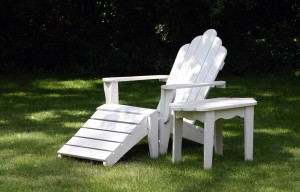Summer vacation is just around the corner! With about 2 months of non-school time ahead, many parents are concerned about their children losing what they have just spent so much time learning! Here, Beyond the Classroom discusses some of the problems facing kids today and our top tips for keeping kids active and ‘learning’ over the summer months.

Did you know?
Did you know that historically, the school year was based around the specific needs of a community? For example, in farming towns in the US, school holidays were scheduled around the spring planting and fall harvest, so that children could be home to help their families around the farm. According to a paper written by Harris Cooper, “By 1900, migration from the farm to the city and an increase in family mobility created a need to standardize the time children spent in school”. Today, in practically all Canadian and American school systems, the 9 month school year dominates.
Lost Learning
According to Cooper, “educators and parents often voice two concerns about the possible negative impact of summer vacation on student learning.” These concerns include:
- Children learn best when instruction is continuous. The long summer vacation breaks the rhythm of instruction, leads to forgetting, and requires a significant amount of review of material when students return to school in the fall.
- The long summer break can have a greater negative effect on the learning of children with special educational needs. For example, children who speak a language at home other than English may have their English language skills set back by an extended period without practice, and those from lower socioeconomic areas may not have the means to access local summer programs.
Facing the Facts
Many people think that two months can be a long break from learning. Some studies show that, on average, certain students may lose the equivalent of two months of math and reading skills during the summer months! Some teachers find that, in September, they have to re-teach a good chunk of materials from the previous year.
While many experts feel that having some structured events and activities (like camps, sports, etc.) are crucial during the summer months, others say that having some ‘unstructured’ time or ‘free play’ is great too. An interesting article in the Globe and Mail explains how “some educators believe we should allow kids to play freely – and allow them to be bored and figure out what to do with that boredom. They believe there is something to be said for balancing the knowledge children acquire 10 months of the year with some downtime to help their minds relax and function better come September.”
On the other hand, according to Charles Pascal, a professor at the Ontario Institute for Studies in Education at the University of Toronto (OISE), “active kids in the summer, whether in sports or other play activities or a volunteer situation or helping parents with their business, are kids that are continuing to learn.” Many educators fear that many students, especially teenaged ones, will spend much of their free time on the couch watching TV or playing on their devices. While some apps offer educational benefits, these games are often short-lived with little lasting educational effects.

So what can we as parents do to keep our kids engaged and active over the summer months? What is the best way to continue the momentum of school and keep learning alive? Our next article will suggest several great ideas to keep kids busy and learning over the summer! Stay tuned!


